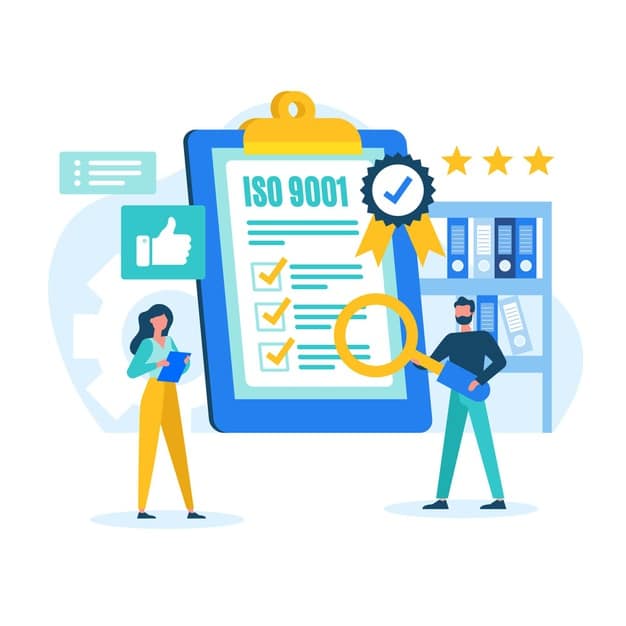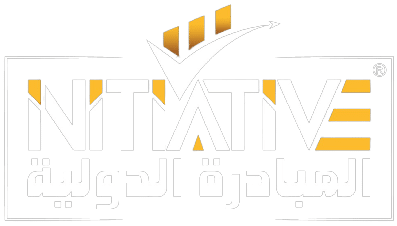Total Quality Management.
It is the continuous development of administrative and financial processes by reviewing and analyzing them and searching for means and ways to raise the level of performance and reduce the time to complete them by dispensing with all useless and unnecessary tasks and functions for the client or the process in order to reduce cost and raise the level of quality based in all stages of development on the requirements and needs of the client.
The concept of the total quality management.
Spreading awareness and enabling participants to learn about development methods should be directed to all categories and levels of management (executive, managers, employees) and the requirements of each category must be met according to the challenges they face.
The executive should work on the implementation strategy while the work teams should work on the technical methods and techniques for developing operations.
As for the senior management, it must be part of the monitoring and supervisory authority over the program and work on managing the correct evaluation. The professional based on the clear elements of evaluation and to address the importance of quality, its tools and methods, the necessary skills, methods of problem solving, making decisions, principles of effective leadership, statistical tools and methods of performance measurement.


Total Quality Objectives.
The application of the concept of total quality management in the organization requires some requirements that precede the start of applying this program in the organization so that employees can be prepared to accept the idea and then strive towards achieving it effectively and limiting its desired results. Here are some of the key requirements for the application.
1- Reducing costs: Quality requires doing the right things in the right way from the first time, and this means reducing damaged things or re-performing them, and thus reducing costs.
2- Achieving quality:- by developing products and services according to the customers’ desire. The lack of attention to quality leads to an increase in the time to perform and complete tasks and an increase in monitoring work and thus increase the complaints of the beneficiaries of these services, and the main objective of applying the total quality management program in companies is The quality of products and services with reduced costs, time and effort wasted to improve customer service and gain their satisfaction.
3- Reducing the time required to complete tasks for the client :- The procedures that were set by the institution to complete the services for the client focused on achieving and monitoring the objectives, and therefore these procedures were often long and rigid, which had a negative impact on the client.
The main requirements for the implementation
1-Supervision and Follow-up: One of the necessities of implementing the quality program is to supervise the work teams by amending any wrong path, and to follow up and evaluate their achievements if necessary. Also, one of the requirements of supervision and follow-up is coordination between the various individuals and departments in the institution and overcoming the difficulties encountered by the work teams, taking into account the public interest.
2- Encouragement and Motivation: Appreciating individuals for doing a great job will inevitably lead to encouraging them, instilling confidence, and strengthening this desired performance. This encouragement and motivation has a major role in the development and continuity of the program. Since the continuity of the program in the company depends entirely on the enthusiasm of the participants in the improvement, so this enthusiasm should be strengthened through appropriate incentives, and this varies from financial reward to moral encouragement, to adopt an effective and flexible incentive program that creates an atmosphere of trust, encouragement and a sense of belonging to the institution and the importance of the role assigned them in the application of the program.
3-Promotion and marketing of products: The dissemination of the concepts and principles of total quality management to all employees in the organization is necessary before making the decision to implement, the marketing of the program helps a lot in a little opposition to change and identifying the expected risks that cause the application so that it can be reviewed.
4- Reshaping the company’s culture: The introduction of any new principle requires a reshaping of the culture of that company, as the acceptance or rejection of any principle depends on the culture and beliefs of the employees in the company. This culture is appropriate to implement the concept of total quality management by changing the administrative methods. In general, an appropriate environment must be created for the application of this new concept, including new cultures.
5- Formation of work teams: Work teams are formed so that they actually perform the work to be developed, which will be affected by the results of the project, and since this formation will improve, they must be from trusted people, and have the readiness to work and develop, as well as they must be given the authority to review and evaluate the tasks included in the process and make suggestions for improvement.
6- Education and Training: Participants must be trained and educated with the methods and tools of this new concept so that it can be based on a sound and solid foundation and thus lead to the desired results from its application. As the application of this program without awareness or understanding of its principles and requirements may lead to catastrophic failure, full awareness can be achieved through effective training programs.
7- The use of consultants: The aim of using external expertise from consultants and specialized institutions when applying to the program is to consolidate the experience of the institution and help it solve problems that will arise.


implementation strategy
The strategy for developing and introducing the total quality management program into practice goes through several steps or stages, starting from preparing for this program until achieving and evaluating the results.
1- Preparation: It is the stage of exchanging knowledge, disseminating experiences, and determining the extent of the need for improvement by conducting a comprehensive review of the results of applying this concept in other institutions. At this stage, desired goals are set
2- Planning: – in which a plan is developed, how to implement it, and the resources needed for the implementation plan are determined
3- Evaluation:- Using statistical methods for continuous development, measurement and improvement of performance level

